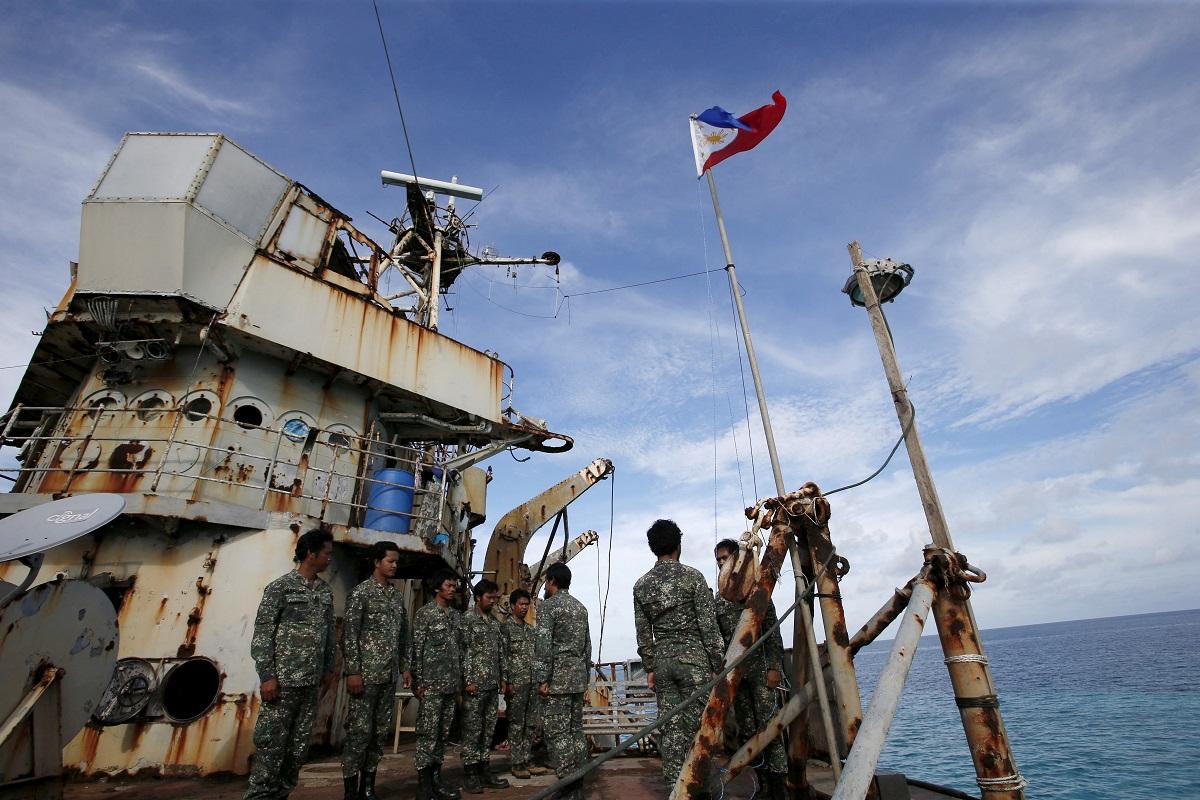West PH Sea: China, PH agree to continue RORE accord for Ayungin Shoal

The Philippines and China agreed Thursday to an indefinite implementation of an arrangement for the resupply of daily necessities and rotation missions by Manila at Ayungin Shoal in the West Philippine Sea.
Signed in July 2024, the provisional agreement that covers Ayungin Shoal, also known as Second Thomas Shoal, seeks to avoid altercations and ease tensions after a violent confrontation on June 17, 2024 at the Philippine-occupied area.
The decrepit BRP Sierra Madre, a rusting World War II-era vessel, was run aground at Ayungin Shoal in 1999 in response to China's occupation of Philippine-claimed Mischief Reef in 1995.
"The two sides exchanged views on the Provisional Understanding on the Philippines' rotation and reprovisioning (RORE) missions to BRP Sierra Madre in Ayungin Shoal, acknowledged its positive outcomes, and agreed to continue its implementation to sustain the de-escalation of tensions without prejudice to respective national positions," the Department of Foreign Affairs (DFA) said in a statement that was released after the conclusion of a bilateral meeting in Xiamen by senior Philippine and Chinese diplomats.
The meeting in Xiamen, the 10th between the two Asian neighbors under a so-called Bilateral Consultation Mechanism, was held amid a backdrop of renewed and growing tensions after a large Chinese Coast Guard vessel, called the monster ship, was spotted in the Philippine-claimed Scarborough Shoal (Bajo de Masinloc) and sailed close to the country's northwestern coastal province of Zambales this week.
Manila protested China's incursion and demanded its ship to withdraw immediately.
Philippine Foreign Affairs Undersecretary Ma. Theresa Lazaro and Chinese Vice Foreign Minister Chen Xiaodong "had frank and constructive discussions on the situation in the South China Sea and other bilateral issues," and acknowledged "unresolved challenges and differences."
Lazaro expressed "serious concern" on recent incidents in the South China Sea, particularly the activities of CCG 5901 and CCG 3103 in Philippine maritime zones, which she said are "inconsistent with the 1982 UNCLOS and the Philippine Maritime Zones Act."
UNCLOS stands for United Nations Convention on the Law of the Sea—regarded as the global constitution for the seas signed by 162 nations, including the Philippines and China.
In November last year, President Ferdinand "Bongbong" Marcos Jr. signed laws demarcating the extent of the Philippines' maritime territories and right to resources, including in the South China Sea. The move angered China, which claims the resource-rich waters nearly in its entirety.
Parts of the waters that fall within Philippine territory have been renamed by the government as West Philippine Sea to reinforce the country’s claim.
"Our position is clear and consistent, but so is our willingness to engage in dialogue. We firmly believe that despite the unresolved challenges and differences, there is genuine space for diplomatic and pragmatic cooperation in dealing with our issues in the South China Sea," Lazaro said.
Through dialogue, diplomacy
During the meeting, Lazaro conveyed to her counterpart that Marcos committed to the "peaceful resolution of disputes through dialogue and diplomacy."
Despite the disputes, the DFA said both sides "agreed to reinvigorate" ties through coast guard cooperation and marine scientific research.
No further details were provided.
The next BCM will be hosted by the at a later date, the DFA said.
Manned by a small Filipino navy contingent, the BRP Sierra Madre in Ayungin Shoal serves as a military outpost and a symbol of Philippine sovereignty.
China's repeated attempts to block Philippine resupply missions and rotational troop deployment to the shoal by firing high-pressure water cannons, intentional ramming and other dangerous maneuvers. These acts have raised tensions, prompting condemnations and concern from several regional and global powers, led by the United States.
Washington has warned that it has a treaty obligation to defend the Philippines from hostile armed attacks.
Ayungin is 105.77 nautical miles from the nearest Philippine province of Palawan and constitutes part of the country’s 200-nautical mile exclusive economic zone and continental shelf, as provided under a United Nations convention.
Several Philippine Navy personnel were injured in the Chinese Coast Guard attack on June 17, 2024, including one who lost his right thumb.
Chinese Coast Guard rammed Philippine vessels, seized firearms and rubber boats, and threatened Filipino soldiers with knives, axe and spears to prevent them from delivering supplies, firearms and other necessities to Filipino troops at the shoal. Chinese personnel also slashed the Philippines' Rigid Hull Inflatable Boats (RHIB) and smashed its navigational screens.
It was the most violent Chinese assault on the Philippines, which triggered strong protests from Manila, with Marcos calling the act "deliberate and illegal."
Manila has demanded that China return the Philippine vessels and firearms. — VDV, GMA Integrated News




